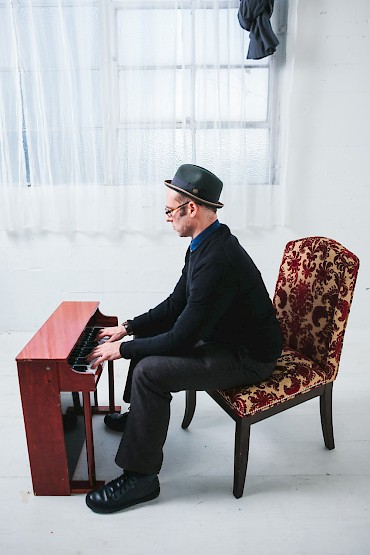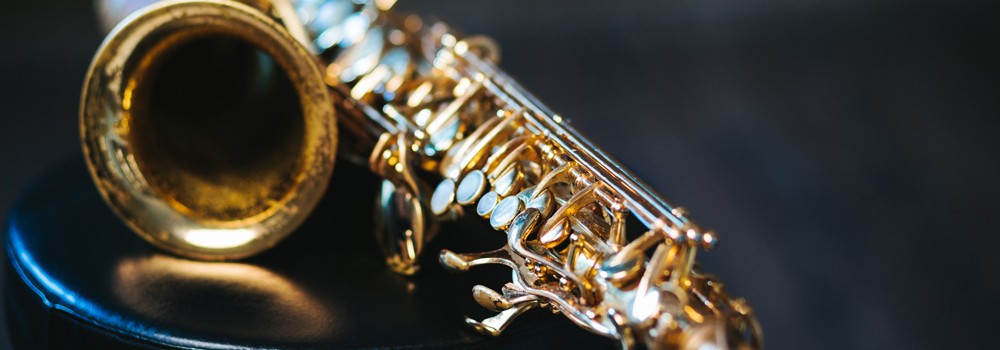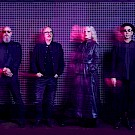Why Isn’t Jazz Popular?
 A New Yorker in PDX, pianist, noted blogger and PSU professor George Colligan often ruminates about jazz audiencesThat question has plagued me since 2002 when I first started working at a jazz radio station in Texas. This was a much different jazz radio station than the one I work for now: KMHD. The station had a split format: jazz during the day, indie rock at night. Truth be told? I was there for the indie rock. But they needed a morning show host, so I started to educate myself in an attempt to appreciate jazz on a deeper level.
A New Yorker in PDX, pianist, noted blogger and PSU professor George Colligan often ruminates about jazz audiencesThat question has plagued me since 2002 when I first started working at a jazz radio station in Texas. This was a much different jazz radio station than the one I work for now: KMHD. The station had a split format: jazz during the day, indie rock at night. Truth be told? I was there for the indie rock. But they needed a morning show host, so I started to educate myself in an attempt to appreciate jazz on a deeper level.
It didn’t take long before I was listening to more jazz than indie rock—and not forcibly but by choice. Eventually, that question started to haunt me: “Why isn’t this music more popular?” Being on the air every day, it didn’t take long to start to find out one of the major reasons. I was playing Herbie Hancock’s record Head Hunters (listen below) one morning when I got a call on the listener line. I picked up and the caller said flatly, “This. Is. Not. Jazz.” Huh? It’s Herbie Hancock, how could it not be jazz? This, as it turns out, was just the tip of the iceberg—so began my experience with a community that I (and others) call the Jazz Police.
Let’s go back, though, to what jazz actually is. We know this music came out of the melting pot that is New Orleans, and that it is an African-American invention. Jazz started as, and continues to be, an interpretation of music. In the beginning, it was an interpretation of American and European classical music mixed with African and slave folk songs (including influences from West Africa). From there, it’s gone on to embody and interpret every musical genre known to man.
JAZZ ISN’T A GENRE.
Jazz is over 100 years old—the longest-running popular music style of the 20th century, and the most expansive and creative musical genre on the planet. Over the years, I’ve become less and less convinced that jazz even is a genre of music. To me, it’s more like a meta-genre. You could look at jazz like a sponge. Pour something into the sponge—say Brazilian folk music—the sponge absorbs and when you wring it out, you’ve got bossa nova. This little sponge experiment can be done again and again with every musical genre on the planet and you’ll find a conduit for it through jazz.
No matter what type of music is your favorite, you’ll find a type of jazz that explores, amalgamates, or skirts around it. Let’s say you’re into psychedelic rock. Check out any of the myriad jazz fusion recordings from the late ’60s on labels like Impulse, Cadet or CTI. Like hip-hop? Jazz has been influencing it before it existed. Dig country music? Check out Sonny Rollins’ Way Out West. You get the point. But jazz isn’t just derivative either—throughout its history, the true innovators of jazz have developed whole new styles of music and playing. (See John Coltrane, Thelonious Monk, Charles Mingus, Nina Simone or Charlie Parker.) Jazz history favors its innovators, and tends to forget those who don’t.
 The notion that jazz is or isn’t is actually antithetical to the spirit of this music and all of the artists who have pushed its boundaries. Trying to make this music fit into a neat little box just can’t happen. And that’s tough for some people. We crave definitions for our art, and when we can’t describe or compare it, many get frustrated. Hence, the Jazz Police.
The notion that jazz is or isn’t is actually antithetical to the spirit of this music and all of the artists who have pushed its boundaries. Trying to make this music fit into a neat little box just can’t happen. And that’s tough for some people. We crave definitions for our art, and when we can’t describe or compare it, many get frustrated. Hence, the Jazz Police.
I’ve stopped trying to find a clear-cut definition for jazz and embraced the notion that it probably is undefinable. For me, it’s all about the artist’s intent. If the artist intends the creation to be jazz, then it must be! This puts the control where it should be: in the hands of the creator of the work.
You see, when you try to take something as creative as jazz and fit it into a box, it becomes unattractive to people. And, you do a disservice to all of the incredible artists who pushed this great artistic invention forward. Art shouldn’t have too many rules (or any rules at all). Unfortunately, over time a conservative contingent has dominated the jazz scene and branded it with a definition that is stuck in the 1950s. To their mind, jazz died in ’68 when Miles went electric (watch below). But to mine, that was just one of jazz’s many (continuing) amazing evolutions.
If you’re not currently a fan, or haven’t spent much time with this music, I really encourage you to do so. Just dive in headfirst and listen. You’ll be surprised at what you find. There’s something for everybody in jazz. It’s the most open-minded sound on the planet, no matter what the Jazz Police say.
Matt Fleeger is the program director of KMHD, Portland’s jazz radio station at 89.1 FM.





